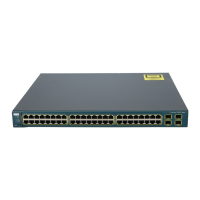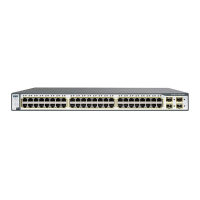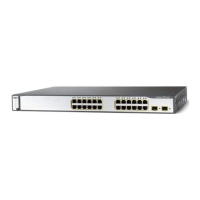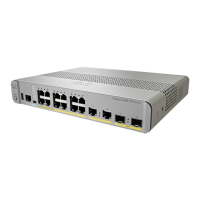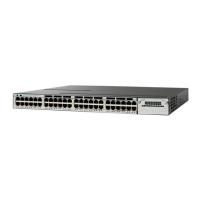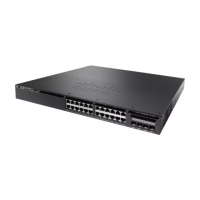IGMP Version 1
IGMP version 1 (IGMPv1) primarily uses a query-response model that enables the multicast router and
multilayer device to find which multicast groups are active (have one or more hosts interested in a multicast
group) on the local subnet. IGMPv1 has other processes that enable a host to join and leave a multicast group.
For more information, see RFC 1112.
IGMP Version 2
IGMPv2 extends IGMP functionality by providing such features as the IGMP leave process to reduce leave
latency, group-specific queries, and an explicit maximum query response time. IGMPv2 also adds the capability
for routers to elect the IGMP querier without depending on the multicast protocol to perform this task. For
more information, see RFC 2236.
IGMP version 2 is the default version for the device.Note
IGMP Version 3
The device supports IGMP version 3.
An IGMPv3 device supports Basic IGMPv3 Snooping Support (BISS), which includes support for the snooping
features on IGMPv1 and IGMPv2 switches and for IGMPv3 membership report messages. BISS constrains
the flooding of multicast traffic when your network includes IGMPv3 hosts. It constrains traffic to approximately
the same set of ports as the IGMP snooping feature on IGMPv2 or IGMPv1 hosts.
An IGMPv3 device can receive messages from and forward messages to a device running the Source Specific
Multicast (SSM) feature.
IGMPv3 Host Signaling
IGMPv3 is the third version of the IETF standards track protocol in which hosts signal membership to last-hop
devices of multicast groups. IGMPv3 introduces the ability for hosts to signal group membership that allows
filtering capabilities with respect to sources. A host can signal either that it wants to receive traffic from all
sources sending to a group except for some specific sources (a mode called EXCLUDE) or that it wants to
receive traffic only from some specific sources sending to the group (a mode called INCLUDE).
IGMPv3 can operate with both ISM and SSM. In ISM, both EXCLUDE and INCLUDE mode reports are
accepted by the last-hop router. In SSM, only INCLUDE mode reports are accepted by the last-hop router.
IGMP Versions Differences
There are three versions of IGMP, as defined by Request for Comments (RFC) documents of the Internet
Engineering Task Force (IETF). IGMPv2 improves over IGMPv1 by adding the ability for a host to signal
desire to leave a multicast group and IGMPv3 improves over IGMPv2 mainly by adding the ability to listen
to multicast originating from a set of source IP addresses only.
IP Multicast Routing Configuration Guide, Cisco IOS XE Release 3.6E (Catalyst 3850 Switches)
OL-32598-01 35
Configuring IGMP
IGMP Versions Differences
